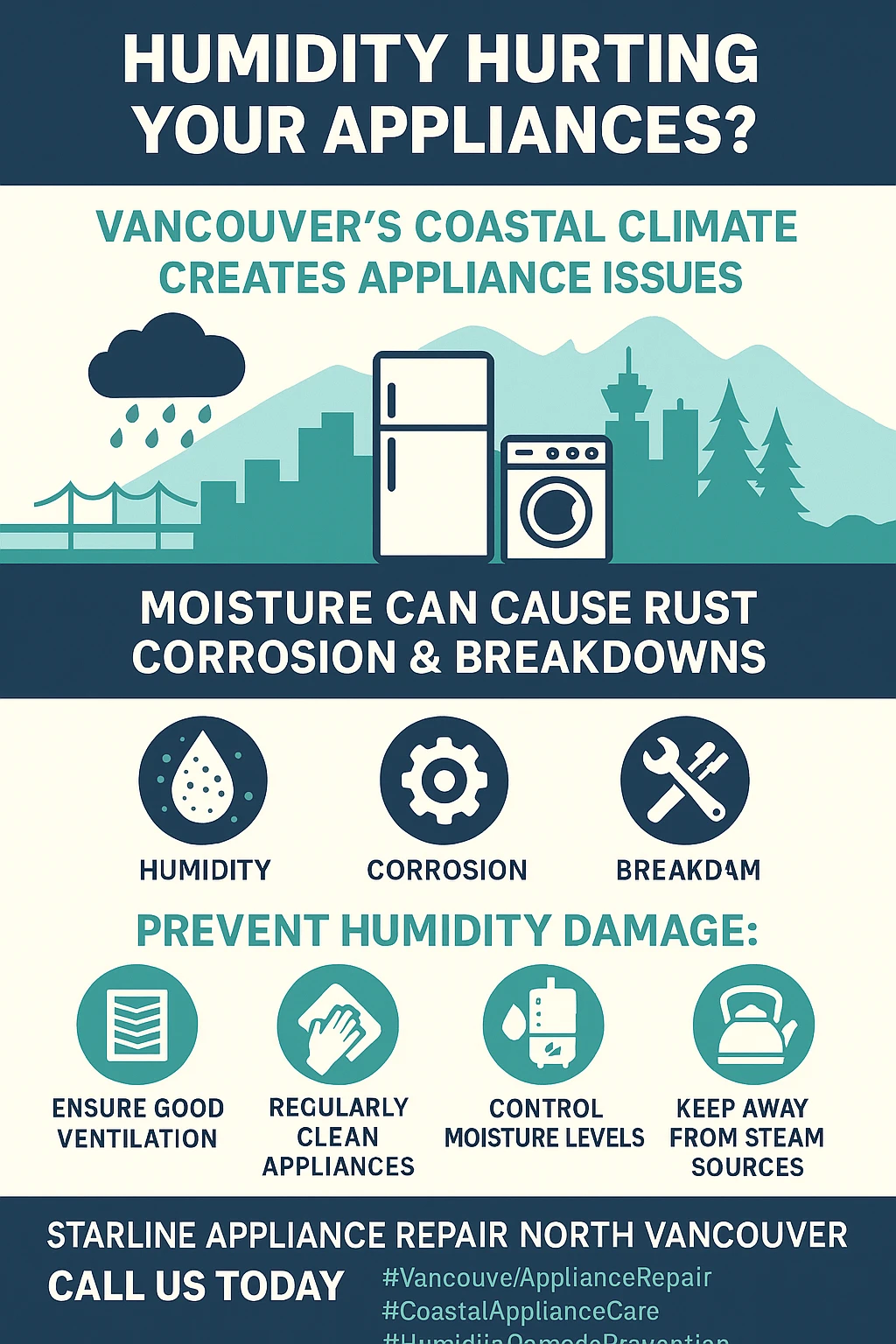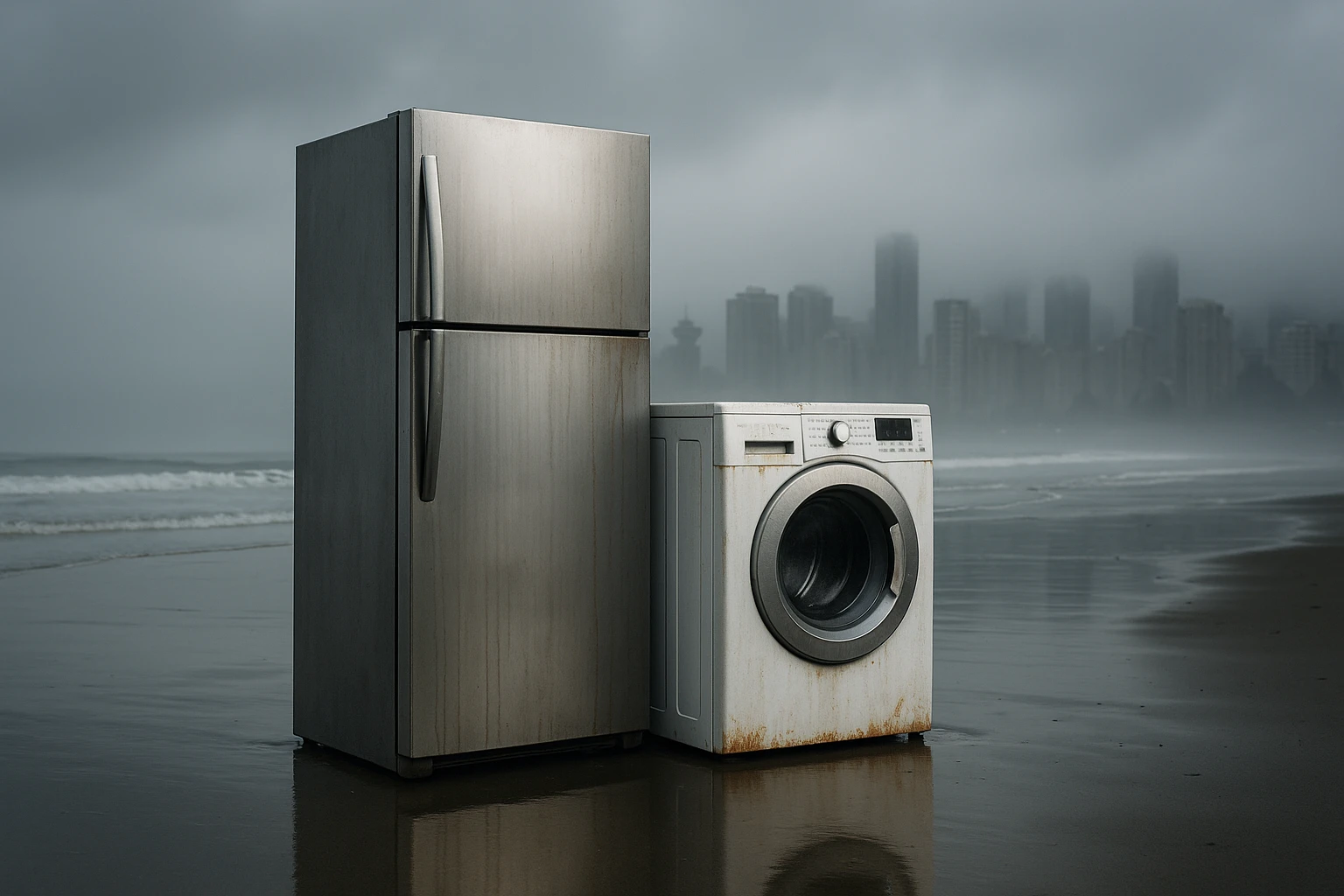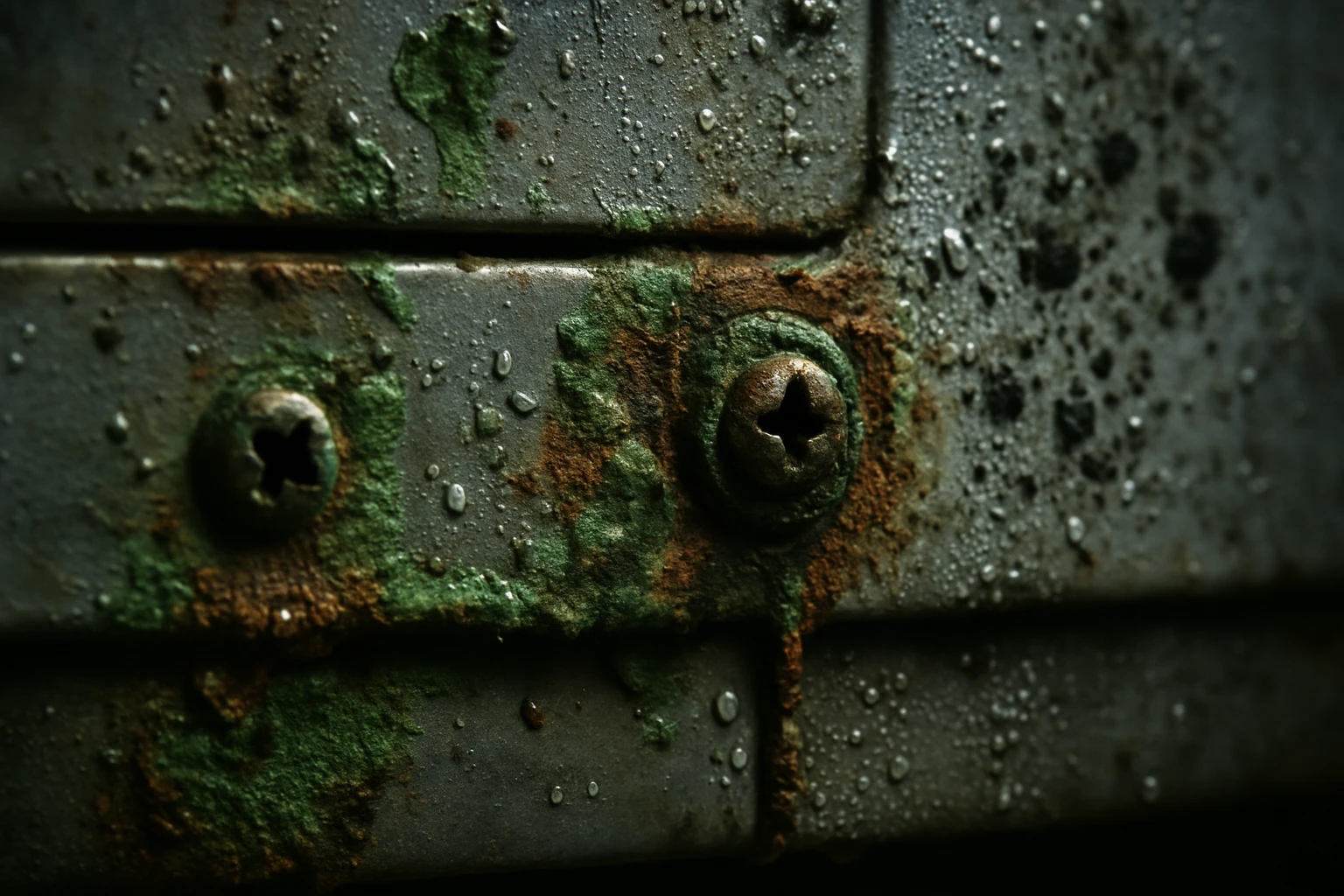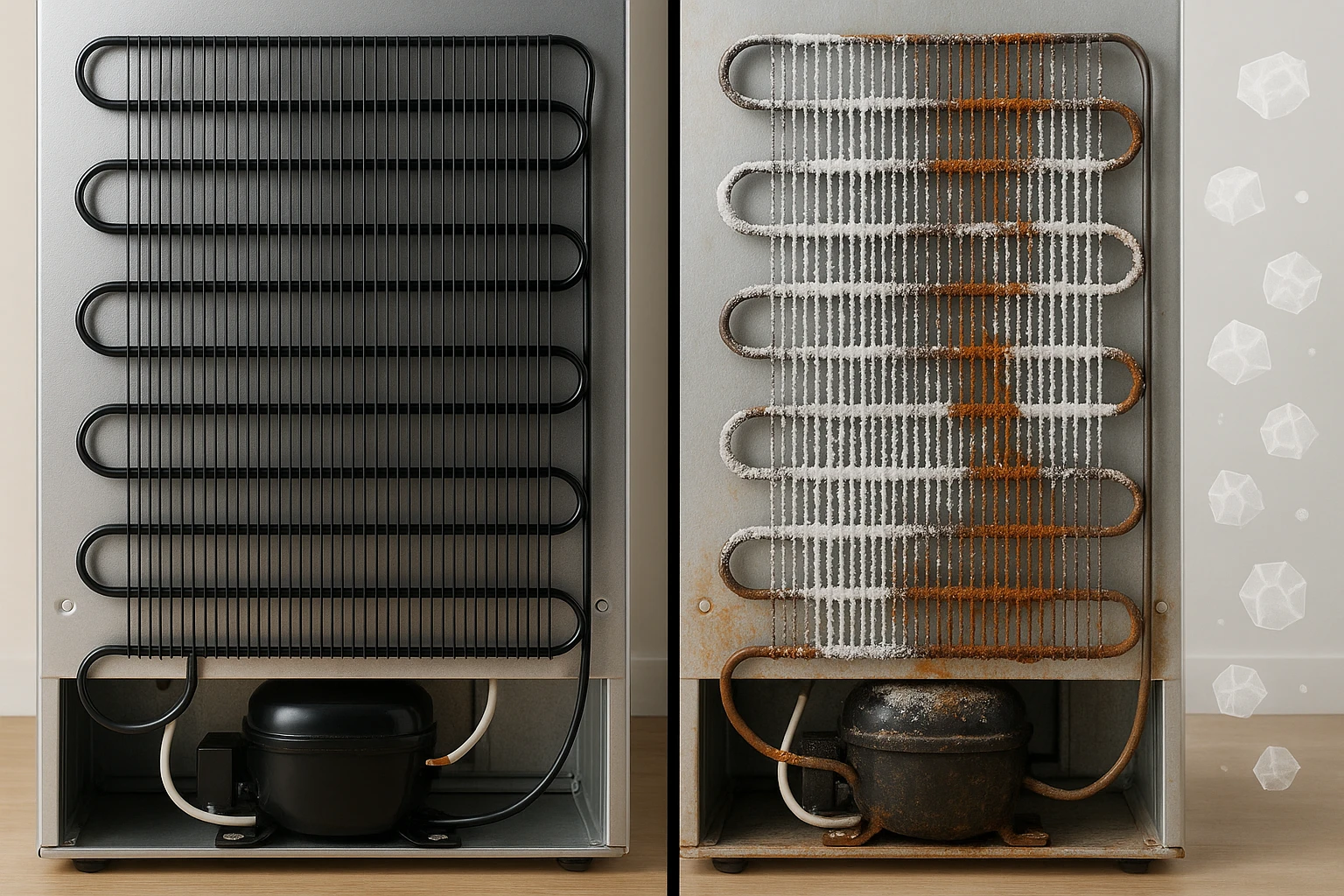Ever wondered why your trusty appliances seem to give up the ghost faster here in Vancouver than they did back home? Vancouver’s high humidity and coastal climate create a perfect storm of conditions that can secretly sabotage your household helpers, turning what should be years of reliable service into costly repair bills and premature replacements.
Living in this beautiful coastal city comes with some hidden costs that most homeowners don’t discover until their dishwasher starts leaving mysterious water spots or their washing machine develops that musty smell that just won’t quit. I learned this the hard way when my three-year-old dryer suddenly started taking twice as long to dry clothes, and the repair technician explained how our salty ocean air had been slowly corroding the internal components all along.
Vancouver’s unique microclimate creates challenges that appliances in drier, inland cities rarely face. Our coastal location means constant exposure to moisture-laden air carrying salt particles from the Pacific. Combined with our famous rainy seasons and significant temperature swings between seasons, these conditions create an environment where appliances work harder and wear out faster than manufacturers’ specifications typically account for.
The good news is that understanding these challenges puts you ahead of the game. Once you know what you’re dealing with, you can take proactive steps to protect your investment and keep your appliances running smoothly for years to come. From simple maintenance adjustments to strategic placement decisions, there are plenty of ways to outsmart Vancouver’s climate and save yourself from those dreaded emergency repair calls.
Key Outtakes:
- Vancouver’s coastal humidity accelerates corrosion in appliance components, particularly affecting metal parts and electronic circuits
- Salt air from the ocean penetrates homes and creates mineral buildup that clogs filters, vents, and internal mechanisms
- Temperature fluctuations between seasons cause expansion and contraction cycles that stress seals, gaskets, and moving parts
- Proper ventilation and humidity control can extend appliance life by 3-5 years in Vancouver’s challenging climate
- Regular maintenance schedules need adjustment for coastal conditions, with more frequent cleaning and inspection cycles

How Vancouver’s Humidity Attacks Your Appliances

Vancouver’s reputation for rainfall isn’t just about those gray winter days – it’s about creating an environment where indoor humidity levels can wreak havoc on your appliances year-round. When warm, moisture-laden air meets the cooler surfaces of your refrigerator coils or washing machine drum, condensation forms in places it was never meant to be. This moisture doesn’t just evaporate harmlessly; it creates the perfect breeding ground for mold, mildew, and corrosion that can slowly destroy expensive components.
Your refrigerator faces particular challenges in Vancouver’s humid environment. The condenser coils that release heat work overtime when surrounded by moisture-heavy air, and the constant condensation cycles can cause ice buildup in unexpected places. I’ve seen perfectly good fridges develop mysterious leaks simply because humidity overwhelmed the drainage systems that were designed for drier climates. The door seals, which rely on maintaining a tight barrier, become compromised when exposed to Vancouver’s humidity fluctuations, leading to energy waste and temperature control problems.
Washing machines and dryers suffer even more dramatically in our coastal climate. Front-loading washers, popular in Vancouver condos for their space efficiency, create the perfect environment for mold growth when humidity can’t escape properly. The rubber door seals trap moisture, and Vancouver’s humid air prevents proper drying between loads. Dryers face the double challenge of trying to remove moisture from clothes while working in an already saturated environment, forcing them to run longer cycles and work harder than they should.
Electronic components throughout your appliances are particularly vulnerable to humidity damage. Control boards and digital displays can malfunction when moisture penetrates their protective housings, leading to erratic behavior or complete failure. The combination of Vancouver’s humidity with temperature changes creates expansion and contraction cycles that can crack solder joints and loosen connections over time.
Kitchen appliances like dishwashers face a unique challenge in Vancouver’s environment. While they’re designed to handle water and steam, the additional ambient humidity means they can’t dry properly between cycles. This leads to mineral deposits building up faster, seals degrading more quickly, and that persistent musty smell that becomes increasingly difficult to eliminate. The heating elements work harder to achieve proper drying, shortening their lifespan significantly compared to appliances in drier climates.
The Salt Air Menace

Even if you don’t live directly on the waterfront, Vancouver’s salt air reaches surprisingly far inland, carried by our prevailing winds and weather patterns. This invisible enemy infiltrates your home through normal ventilation and gradually accumulates on and inside your appliances. Salt is incredibly corrosive to metal components, and over time, even small amounts can cause significant damage to everything from refrigerator coils to washing machine drums.
The insidious nature of salt air damage makes it particularly problematic for Vancouver homeowners. Unlike water damage, which is usually obvious and immediate, salt corrosion happens gradually and often goes unnoticed until major components fail. Your dryer’s lint screen might start showing rust spots, or your dishwasher’s spray arms might develop clogs from mineral buildup – these are often early signs of salt air infiltration that most people dismiss as normal wear and tear.
Refrigerators and freezers are especially susceptible because their coils are exposed to air circulation by design. The salt particles settle on these coils and gradually eat away at the metal, reducing efficiency and eventually causing coolant leaks. In Vancouver’s Kitsilano and West End neighborhoods, where ocean proximity is highest, appliance repair technicians report seeing salt corrosion damage in units as young as five years old – well before their expected lifespan.
Air conditioning units and heat pumps face particular challenges from salt air exposure. The outdoor components are directly exposed to coastal breezes, while the indoor units can suffer from salt particles that make their way through ductwork. The combination of moisture and salt creates an accelerated corrosion environment that can reduce equipment life by up to 40% compared to inland installations.
Small appliances aren’t immune to Vancouver’s salt air assault either. Coffee makers, toasters, and microwaves can all suffer internal corrosion that affects their performance and safety. The heating elements in these devices are particularly vulnerable, as the combination of heat and salt creates ideal conditions for rapid metal degradation. Understanding these environmental factors helps explain why appliances that should last decades sometimes fail within just a few years in coastal environments.
Temperature Swings and Thermal Stress

Vancouver’s moderate climate might seem gentle, but the constant temperature fluctuations throughout the year create unique stress patterns that can be harder on appliances than more extreme but stable climates. Our transition from cool, damp winters to warm, dry summers forces appliances through repeated expansion and contraction cycles that gradually weaken seals, gaskets, and mechanical connections.
The challenge isn’t the absolute temperature ranges – it’s the frequency of change. Vancouver appliances might experience dozens of heating and cooling cycles in a single month during transitional seasons, compared to appliances in more stable climates that might go weeks with consistent temperatures. This thermal cycling is particularly hard on rubber and plastic components, which lose flexibility over time and eventually crack or fail.
Refrigerators and freezers work significantly harder during Vancouver’s variable weather patterns. When indoor temperatures fluctuate with the seasons and daily weather changes, these appliances must constantly adjust to maintain consistent internal temperatures. The compressors cycle on and off more frequently, the door seals expand and contract repeatedly, and the overall system experiences more wear than it would in a climate-controlled environment.
Your home’s heating and cooling systems face similar challenges, but with the added complexity of trying to manage both temperature and humidity simultaneously. Heat pumps, popular in Vancouver for their efficiency, must work harder during our shoulder seasons when temperatures hover around their optimal operating ranges. The constant switching between heating and cooling modes puts additional stress on reversing valves and other mechanical components.
Water heaters experience thermal stress in unique ways in Vancouver’s climate. The incoming water temperature varies significantly between summer and winter, forcing the heating elements to work harder during colder months. Combined with our hard water conditions in many neighborhoods, this thermal cycling accelerates mineral buildup and reduces element life. Tank-style water heaters are particularly vulnerable, as the repeated heating and cooling cycles can stress the tank walls and connections over time.
The Hidden Dangers of Poor Ventilation
Vancouver’s dense urban environment

